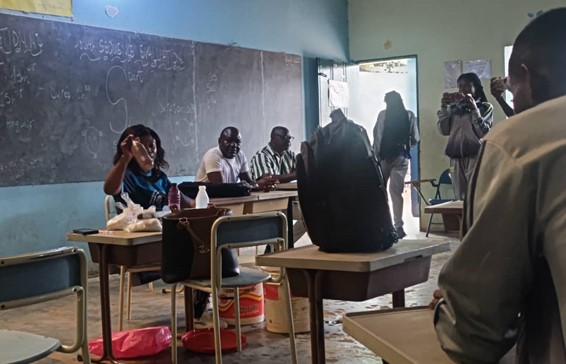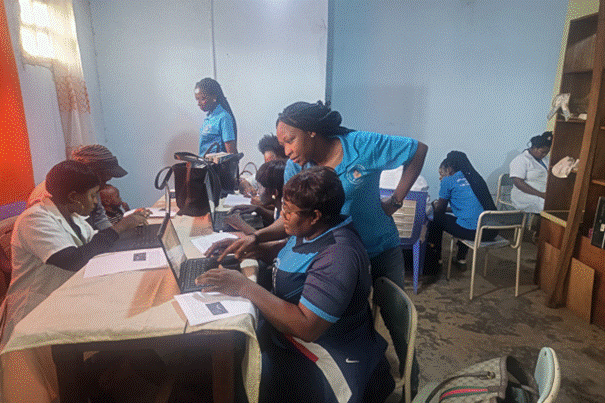Renforcement de capacités


FAPEFE oeuvre pour renforcer les capacités des femmes pour faciliter et encourager l’insersion professionnelle. La plupart de ces groupes sont principalement composés de veuves, de mères célibataires, et femmes démunies.
Les femmes sont au centre des travaux de la FAPEFE car elles sont généralement désavantagées dans presque toutes les communautés de la région du Centre, en particulier les femmes rurales. C’est pourquoi FAPEFE oeuvre à les autonomiser de diverses manières. Parmi les activités menées au sein de ces groupes, on peut citer le renforcement des capacités par le biais d’ateliers de formation, de cours d’alphabétisation pour adultes et des sensibilisations.
Les activités suivantes ont été réalisées dans le cadre de cet objectif :
- Programme d’alphabétisation pour adultes
Ce programme a été lancé en 2008 après une évaluation des besoins de la communauté et se poursuit depuis 2011. Le département Genre de la FAPEFE a identifié des lacunes en matière d’alphabétisation. Ce programme a été conçu pour combler ces lacunes grâce à des cours d’une heure, dispensés deux fois par semaine, aux femmes affiliées dans notre association.
- Formations professionnelles
La FAPEFE organise chaque année plusieurs ateliers sur le savon, informatique et le tie-dye, le leadership, sport et la dynamique de groupe, ainsi que les bases de la gestion financière. Chaque année, jusqu’à 150 participants participent aux différents ateliers.
- Participation à des événements sociaux
Au cours des quatre dernières années, la FAPEFE a participé à la Journée mondiale de lutte contre les maladies, à la Journée de la jeunesse et à la Journée internationale des droits de la femme pour aider à sensibiliser le public sur les questions de genre et de droit.
Pour contribuer ou proposer des idées, contactez-nous ou faites un don.
